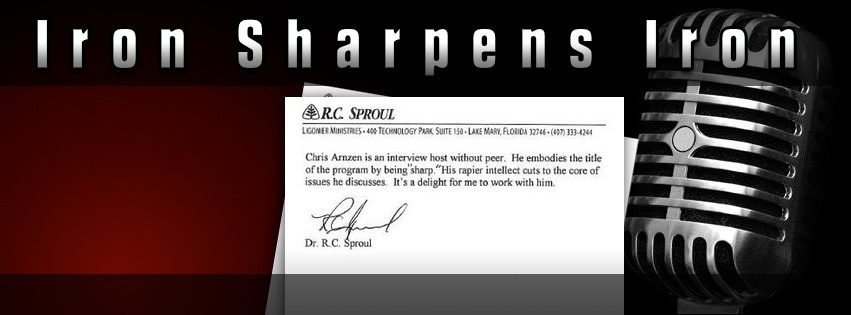




 |
|||||
 |
THE MINISTER AND HIS GREEK NEW TESTAMENT: A Classic Volume for Today
A.T. Robertson, New Introduction by Dr. Michael Haykin, Afterword by J. Gresham Machen![]()
"Ministers and seminarians need every encouragement they can get to not cut corners and to give themselves to the irreplaceable study of the Word of God in its original languages. This book is a classic, written by one who not only knew the Greek New Testament, but loved it. May ministers and men preparing for the ministry have the fire of love for the Greek New Testament re-kindled in their hearts. We need this reprint, and it needs to be in the hands of those who long to 'rightly divide the Word of Truth.' - Pastor William Shishko![]()
"This slim volume is a classic, and like all classics it will be read to great profit. It may be small in size, but it is big in concept. Here Professor Robertson reminds his reader of what is paramount in pastoral ministry. Many modern pastors are most comfortable in the family room or the board room. They have been taught to see themselves as managers of people or administrators of programs. After all, they were told, the congregation does the real work of the ministry while pastors merely act as encouragers and facilitators.![]()
A close reading of the New Testament (in Greek!), however, reveals an altogether different model. The ministry is performed by ministers of the word. They are not generalists but specialists; they are preachers and teachers of the word of God. Their world is made up of words, the words of the Bible, in this case the words of the New Testament. The minister of the word, then, must be most comfortable not in the family room or the board room, but in the study. He must learn to know and to proclaim the New Testament as that word was originally given by God. 'The real New Testament is the Greek New Testament,' says Robertson, and rightly so. He goes on to say, 'Sermons lie hidden in Greek roots, in prepositions, in tenses, in the article, in particles, in cases.'![]()
Here is a volume that ought to be read by every ministerial aspirant, reread by every ministerial student, and frequently revisited by every faithful minister of the word. Ministers of the word must always keep in mind their calling, their work, to know and to proclaim the word. If you are a minister and have not read it, buy a copy immediately and do so. If you are a layman, buy it and read it for yourself, then give it to your pastor. Tell him you want him to be faithful to the word, the word as it was originally given, in the Greek New Testament." - Pastor Don Lindblad![]()
"It ought to be taken for granted that the preacher has his Greek Testament. This statement will be challenged by many who excuse themselves from making any effort to know the Greek New Testament. I do not say that every preacher should become an expert in his knowledge of the New Testament Greek. That cannot be expected. I do not affirm that no preacher should be allowed to preach who does not possess some knowledge of the original New Testament. I am opposed to such a restriction. But a little is a big per cent. On nothing, as John A. Broadus used to say. This is preeminently true of the Greek New Testament.![]()
The real New Testament is the Greek New Testament. The English is simply a translation of the New Testament, not the actual New Testament. It is good that the New Testament has been translated into so many languages. The fact that it was written in the koinT the universal language of the time, rather than in one of the earlier Greek dialects, makes it easier to render into modem tongues. But there is much that cannot be translated. It is not possible to reproduce the delicate turns of thought, the nuances of language, in translation. The freshness of the strawberry cannot be preserved in any extract.![]()
The most perfect vehicle of human speech thus far devised by man is the Greek. English comes next, but Greek outranks it. The chief treasure in the Greek language is the New Testament. Homer and Thucydides and Aeschylus and Plato all take a rank below Paul and John and Luke. The cultural and spiritual worth of the Greek New Testament is beyond all computation. In the Renaissance the world woke up with the Greek Testament in its hands. It still stands before the open pages of this greatest of all books in wonder and in rapture as the pages continue to reveal God in the face of Jesus Christ." - A.T. Robertson![]()
A.T. Robertson - (1863-1934), New Testament scholar ![]()
Archibald Thomas Robertson was born near Chatham, Virginia, but grew up on a farm in North Carolina. In 1876, he was baptized and began his lifelong loyalty to the Southern Baptist Church. After graduating from Wake Forest College, he enrolled in the Southern Baptist Theological Seminary at Louisville, Kentucky and received the Th.M. in 1888. In 1892 Robertson was appointed professor at Southern Baptist and remained in that post until a day in 1934 when he dismissed his class early and went home and died of a stroke. ![]()
Robertson's books are still consulted today, particularly his Word Pictures in the New Testament and his landmark volume A Grammar of the Greek New Testament in Light of Historical Research. In all, he published forty-five books, several of which are still in print today. Robertson helped found the Baptist World Alliance in 1900. He was an important Southern Baptist and a well-respected scholar in his day. As the son-in-law of famous preacher John Broadus (Robertson's grave lies in the shadow of Broadus), Robertson sought to equip his students with the proper tools for good preaching.![]()
HERM2 sgcb12![]()
![]()
NEARLY 50% DISCOUNT![]() SGCB Price: $7.95 (list price $14.00)
SGCB Price: $7.95 (list price $14.00)![]()
Additional Information
Foreword by Dr. Michael Haykin
• Table of Contents
Preface by the Author
I. The Minister's Use of His Greek New Testament
II. Notes of a Specimen Papyrus of the First Century A.D.
III. The Use of "Huper" in Business Documents in the Papyri
IV. Pictures in Prepositions
V. The Greek Article and the Deity of Christ
VI. The New Testament Use of "Me" with Hesitant Questions in the Indicative Mode
VII. Grammar and Preaching
VIII. Sermons in Greek Tenses
IX. John Brown of Haddington or Learning Greek with a Teacher
X. The Grammar of the Apocalypse of John
XI. The Romance of Erasmus's Greek New Testament
XII. John Broadus as Scholar and Preacher
Afterword: The Minister and His Greek Testament by J. Gresham Machen
